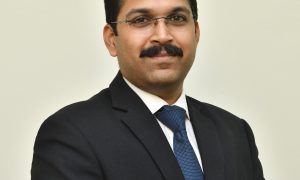Vikrant Pachnanda graduated from GNLU in 2011. While in college, he founded the widely successful India Law Journal. He is also a senior editor for SILC (Standard Indian Legal Citation), which aims at providing uniform legal citations for Indian sources that are usually not covered by other standard citation formats. He is currently on his way to Cornell University for his LLM.
In this interview, he talks to us about
- Founding the India Law Journal
- Having ILJ copies at the International Court of Justice
- Plans for the future
Given that most of our readers are law students and lawyers, how would you introduce yourself to them?
I passed out of Gujarat National Law University in 2011 and then joined Luthra & Luthra Law Offices as an Associate, where I was part of the team handling Mergers & Acquisitions, Aerospace & Defence, Anti-Bribery Compliance and Knowledge Management. Thereafter, I worked in the Chambers of Mr. Najmi Waziri, Chief Counsel for the Government of the National Capital Territory until his recent elevation as a Hon’ble Judge of the Delhi High Court. I am now on my way to Cornell University to pursue my LLM.
Though it’s one of the most asked questions but yet, why law?
I have always enjoyed speaking in public forums and thus developed my passion for wearing the black robes and arguing before a court of law.
You are the founder of one of the most prominent journal, India Law Journal. How did you come up with the idea of creating something like this?
During my first few months at law school, I had authored an article which I sent for publication to an international law journal. Although they liked my piece, they told me that since I was not a lawyer they could not publish the article, as they published only articles authored by lawyers and not law students. I wanted to create a platform dedicated to express views on topical legal issues, thereby generating a cross current of ideas on emerging matters. The aim was to ignite the initiative and desire of young law students to contribute in the field of law alongside soliciting the erudite response of legal luminaries.
You have been running the India Law Journal for past five years or so. How is your experience so far?
It’s been a fabulous experience. However, I would not like to take the credit alone, since it has been a team effort. I would like to thank the entire Editorial Team, who have all worked very hard in creating a platform which focuses on legal issues that are challenges before law makers, lawyers and the society at large, in an ever changing social, economic and technological scenario.
The journal also found a place in the International Court of Justice. How did that happen?
My Director at GNLU, Dr. Bimal N. Patel has been very supportive of this initiative and prior to joining GNLU as the Director, was working with the Organisation for the Prohibition of Chemical Weapons which is situated at The Hague, Netherlands. It was his suggestion that I send a copy of the first Annual Issue of the ILJ, which was published around five years ago, to the Peace Palace Library at the ICJ. Therefore, Dr. Patel very kindly put me in touch with the Director of the Peace Palace Library and ever since, copies of ILJ have been going there.
Also, Congratulations on being selected for Cornell University. So what plans do you have once you finish your LLM?
Well it’s too early to say now since I can only take a call on my next step once I reach Cornell and may be finish a semester.
Last but not the least, what would be your message for law students?
Well, I think one should do whatever their inner-voice says and what they feel they will enjoy doing the rest of their life.
























